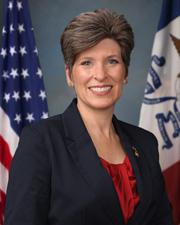0
REMOTE Act
2/3/2025, 5:20 PM
Summary of Bill S 21
Teleworking, also known as telecommuting, is a work arrangement in which employees are able to work from home or another remote location instead of commuting to a traditional office. The bill seeks to increase the use of teleworking within the government in order to improve efficiency, reduce costs, and promote work-life balance for employees.
The Telework Enhancement Act of 2010 requires Executive departments to establish telework policies that outline the eligibility criteria for teleworking, the procedures for requesting and approving telework arrangements, and the responsibilities of both employees and supervisors in implementing telework. The bill also requires departments to collect data on teleworking employees, including the number of employees teleworking, the frequency of telework arrangements, and the impact of teleworking on productivity and employee satisfaction. Overall, the Telework Enhancement Act of 2010 aims to modernize the way government employees work by promoting teleworking as a viable option for increasing efficiency and flexibility within the Executive departments. By requiring departments to establish telework policies and collect data on teleworking employees, the bill seeks to improve the implementation and effectiveness of teleworking arrangements within the government.
Congressional Summary of S 21
Requiring Effective Management and Oversight of Teleworking Employees Act or the REMOTE Act
This bill directs executive agencies to track employees' computer network activity, compare the activity of teleworking and on-site employees, and report on any deficiencies in the performance of teleworking employees.
First, the bill requires each agency to establish policies to track for every employee (1) the average number of daily logins, (2) the average daily duration of the network connection, and (3) the network traffic generated while the employee works. This information must be collected from employees working primarily on-site within 180 days after the bill's enactment and from teleworking employees within one year after the bill's enactment. The bill also directs each agency to publish this data in the agency’s fiscal year budget justification materials, including a comparison of the average login rates of on-site and teleworking employees.
Next, the bill directs any manager who revokes a teleworking employee's authorization to telework (due to a reason specific to that employee) to document for the employee and the agency's Human Capital Office (1) the total number of days that the employee teleworked in the six work periods immediately preceding the revocation, (2) a narrative summary of the circumstances giving rise to the revocation, and (3) any steps the manager took to discipline the employee before revoking the employee's telework authorization.
Finally, agencies must report to the Chief Human Capital Officers Council about any adverse effects of telework policies on the performance of the executive agency.
Read the Full Bill
Current Status of Bill S 21
Bipartisan Support of Bill S 21
Total Number of Sponsors
7Democrat Sponsors
0Republican Sponsors
7Unaffiliated Sponsors
0Total Number of Cosponsors
1Democrat Cosponsors
0Republican Cosponsors
1Unaffiliated Cosponsors
0Policy Area and Potential Impact of Bill S 21
Primary Policy Focus
Government Operations and PoliticsAlternate Title(s) of Bill S 21
Comments

Damir Carver
10 months ago
This bill is a joke. It's gonna mess things up for me in the long run.


